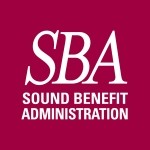While rare, whether it be a misunderstanding, an audit after-the-fact, or a mix up in dates, sometimes it is determined that someone who is expecting to be offered COBRA, or even has been enrolled in COBRA, is actually not eligible for the benefit. What is an employer expected to do in this scenario? The Department of Labor’s COBRA regulations require a plan administrator to provide a Notice of Unavailability. This notice must explain why COBRA coverage (or an extension of COBRA coverage) is not available to the individual.
We all know that an eligible employer must offer COBRA to an employee or eligible beneficiary when a qualifying event has occurred. In the case of a second qualifying event or a subsequent disability determination by the Social Security Administration after the initial COBRA enrollment, the individual may be entitled to an extension of COBRA coverage.
But let’s say that it is later determined that the individual in question is not entitled to COBRA coverage (or an extension of COBRA coverage).
In these cases, a Notice of Unavailability “would be required when a plan administrator denies continuation coverage because it has been determined that no qualifying event had occurred or because the qualifying beneficiary did not furnish the notice of qualifying event notice in a timely manner or did not provide complete information.” Basically, a notice needs to be sent whenever someone who thought they should be receiving COBRA (or an extension) turns out not to be eligible.
Let’s look at a scenario where a Notice of Unavailability was required.
We have only issued this type of notice a few times. Recently, we sent a COBRA notice to a terminating employee, she accepted, paid the premium and we enrolled her in benefits. Upon review by the insurance carrier, it was determined that the employer did not meet the Federal requirements to be a COBRA eligible employer. As such, the carrier notified the employer that this employee was entitled to only 90 days of continuation coverage. We decided the Notice of Unavailability would be the right tool to use in this case even though she did indeed have a qualifying event of termination of employment.
Here is a what we sent to this employee:
RE: Notice of COBRA Unavailability
We were asked to provide your former employer, ABC Corporation, with COBRA administration beginning December 1, 2023. It was discovered later that your former employer is not a COBRA eligible employer until January 1, 2024. An employer must have 20 or more employees for 50% or more of the previous calendar year, they did not meet this requirement in 2022, therefore are not a COBRA eligible employer in 2023 when you terminated employment.
Employers who do not meet the Federal requirement as a COBRA eligible employer, are able to offer Washington State’s mini-COBRA extension for 30, 60 or 90 days, depending on the insurance carrier. [Insurance Carrier] allows up to 90 days to stay on your former employer’s plan. You paid for December, January and February premiums and we forwarded it to ABC Corporation. [Insurance Carrier] did an audit of the employer and found they were not a COBRA eligible employer after we forwarded your premiums to them. This notice of unavailability is required when an offer of COBRA needs to be rescinded.
[Insurance Carrier] mailed you a termination of coverage letter. You may use this letter to apply for individual coverage through the Washington State Exchange or to have special enrollment rights to get on a spouse’s group medical plan effective March 1, 2024.
One more wrinkle to this situation. It isn’t necessarily the person who provided the notice of the COBRA qualifying event, second qualifying event, or disability determination who is entitled to receive the Notice of Unavailability. Why? It’s possible that the reporting individual is still COBRA eligible and it is determined that another beneficiary has been determined to be ineligible. Here, the plan administrator must provide the Notice of Unavailability to the person who was expecting to receive the COBRA coverage or extension of COBRA coverage.
There are all sorts of COBRA idiosyncrasies we deal with that flex our alphabet soup expert muscles. This is just one example and why employers should work with experienced an administrator who digs into the details like we love to do here at SBA!
